Tears are one of our only means of physically and tangibly expressing emotion. They not only become a part of any emotional arousal, but they also play a significant role in all the emotions they participate in.
Tears are the chemical responses to any emotionally stimulating situation. Be it happiness, sadness, anger, or loneliness, tears, most of the time are physical consequences of the processed/processing emotion(s). They’re the partners in a bodily outburst.
We’re not delving into any negatively triggering causes of tears, but the positively triggering ones! Jokes! Jokes make us laugh so hard that we cry. Jokes build and blow off all accumulated feelings, with a good sense of humor. Laughter is our best medicine and hence, we need to stack up on a good bunch of great jokes to last a particularly difficult phase in our lives!
But, the problem is that we may have got laughter and the “tears of joy” a little wrong here.

Meaning of 😂
The 😂 Tears of Joy emoji depicts a yellow face (one that symbolizes a human face) that’s laughing hard. The immensity of the hilarity behind the laughter is directly proportional to the tears, in this emoji. It’s a portrayal of the common paradox of ‘crying while laughing’ and is hence named as such – tears of joy.
A Little About Laughter

Laughter is a physiological activity. This means, it’s one of the chips inserted in our programming, which we call our bodies. It’s in-built in other words. Scientific research has it that we express with laughter much before we express emotion with words. Therefore, laughter is an act of communication before it’s an emotional response.
Talking With Giggles
We laugh not at the jokes we hear but with the ones who tell them. There’s an invisible but oh so substantial emotional atmosphere in laughter. People who know each other laugh together. If a stranger laughs at your joke, it’s because they like you a little before they like the joke.
When people in romantic relationships laugh, they radiate positive and constructive energy amongst and around themselves, thus strengthening their bond and making their life together secure in the face of uncertainty. People who laugh together will somehow stay together. If not entirely, but for as long as their relationship is meant to be. Laughter is communicative.
A Lot About Tears
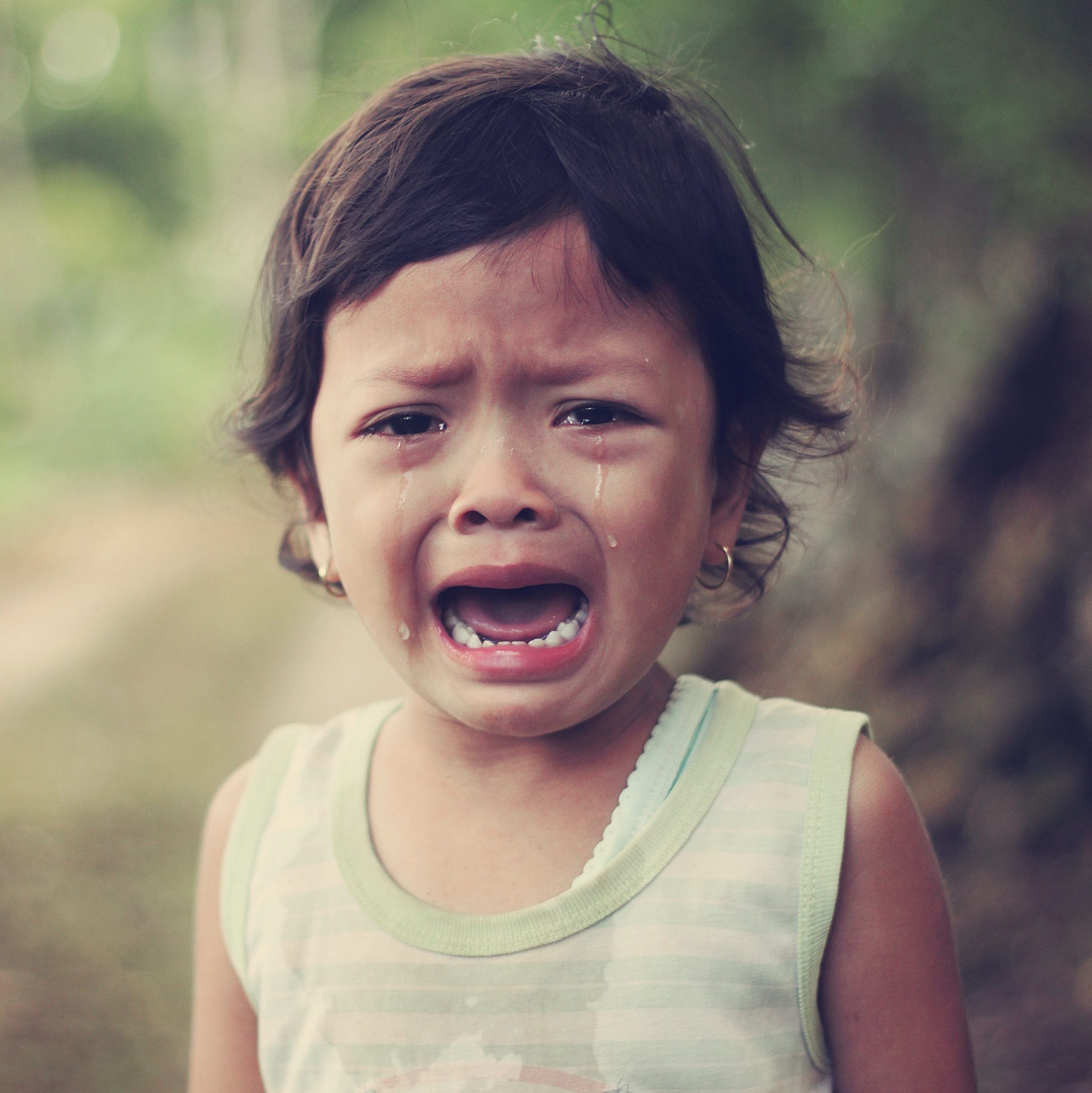
The extent to which laughter is associated with jokes is the fork on the road where we often take the well-traveled path. We verified that with scientific proof, and this notion of laughter is not very likely.
But, what about tears when we laugh hard? If laughter is a mode of communication and if it’s a sign of social rejection or acceptance, then why do we cry when we laugh uncontrollably?
When we tear up or have a full-fledged cry in any emotional scenario (including a funny one), there’s a sense of relief. On some level, we feel lighter. After a good cry that lasted hours for a reason(s) we don’t consciously know of, we feel great and unstoppable.
When we cry in a fit of anger, we cool down to some extent and come to our senses. When we cry over a joke, there’s a release, an outburst of laughter that, in hindsight, is fighting a deeper cause(s).
Tears of Joy
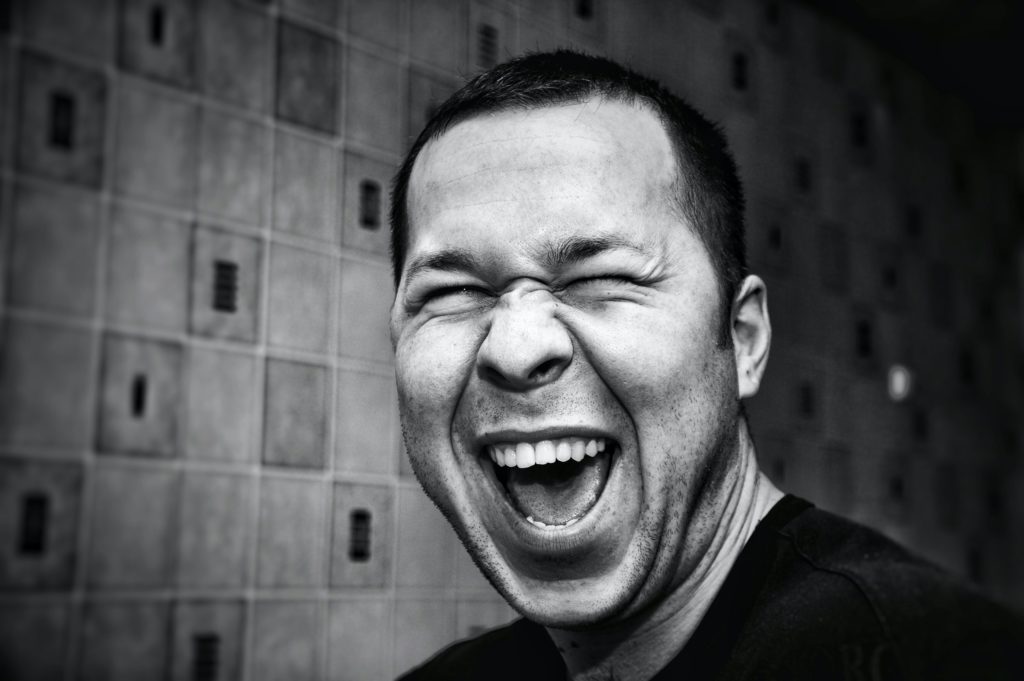
We’ve all (well, most of us) have experienced intense hilarity, where, we start crying because we just can’t stop laughing. There are many reasons why this could be happening. From reflex tearing and clenched tear ducts to mental disorientation that hinders appropriate emotional response corresponding to the stimulus, ‘tears of joy’ can have different sources.
When we laugh hard, hysterically, in other words, our body goes into a state of pressure and some amount of stress (not the kind of stress we’re used to, but physical stress on certain body parts).
In a physiologically stressful situation, our body releases stress hormones like cortisol and adrenaline. This also happens when we have an emotional outburst rooted in sadness. So, when we cry, the tears counteract those stress hormones. Thus, easing the pressure that’s being caused to the body. And that’s how we feel relieved, emotionally.
The Most Famous Emoji & What it Means
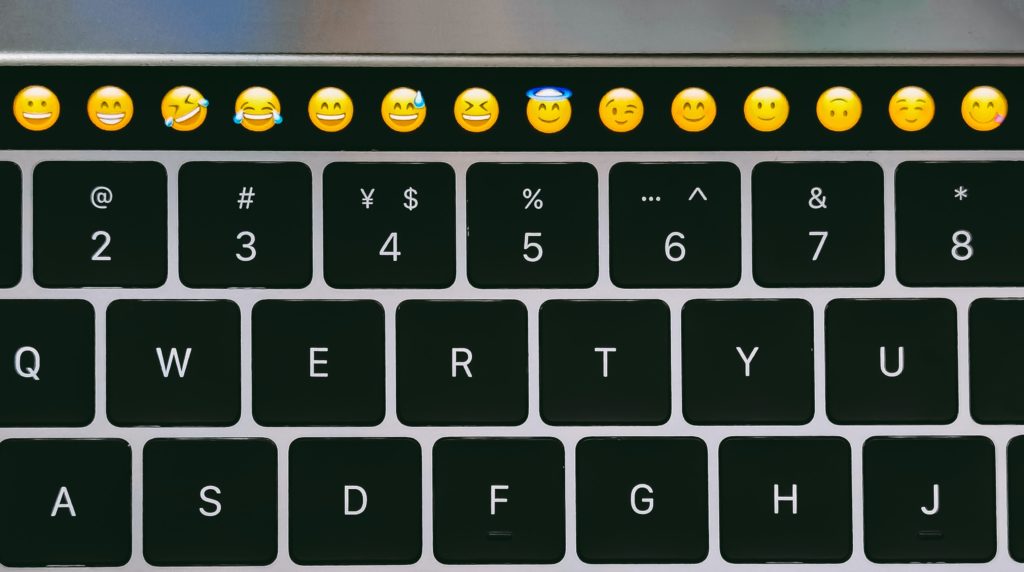
Yep. The 😂 tears of joy is indeed the most popular emoji in the social media universe. Stats and research of emoji usage across different virtual platforms reveal 😂 to be the most used emoji by netizens and hence takes the first place on the chronological list of emoji popularity.
This says a lot of things, good things, about our virtual attitudes. We seem to be able to take things with a pinch of salt. That salt, being humor, in this case. If tears of joy is the emoji that ranks first, that only translates to laughter, and joy to be our most favored emotional response and emotion, respectively. As it should be!
But, not everyone can take a good joke.
Who doesn’t like a good laugh? Especially when it’s the cheapest way to heal. Laughter, be it an authentic expression of appreciation, or a cynical and judgemental approach to things/people, gives us our daily bread; the dose of humor. But today’s problem? Very few break that bread together.
One human’s sense of humor is another’s sense of offense. The cause may lie in our widespread desensitization culture where we constantly go all out to “normalize” things. And humans, being humans, ironically, lack the sense of discrimination between things that are normal and should be normalized and things that simply, aren’t.
Is 😂 a Sign that Someone Likes You?

So far, we’ve broadened our understanding of the social scenario of laughter. So, when someone you don’t know or since it’s online, don’t know very much (because social media feeds us well with some amount of prior info, puns intended), sends 😂 when you say something, it could mean something deeper than what’s legible on the surface.
Here are some instances and some possibilities of what an instance could mean:
You cracked a silly joke, one that wasn’t even intended to be a joke, and the other person sends 😂.
- They’re not really paying attention to the context.
- They have a little less than a massive crush on you.
- They like you. For nothing, but just you.
- They want to know you more.
- They want you to like them.
You cracked a good joke and someone replies with a 😂.
- They appreciate the joke and your sense of humor.
- They find you to be interesting, they don’t want the conversation to ghost out, and hence they want it and your relationship (in whatever measure and type it could be) to last longer than expected.
- They’re, to some extent, likeminded. Because you could also get 😂 in response if you cracked a joke about a subject that’s familiar to them or means something to them.
- They find you funny and could want to be friends.
You cracked a great joke and someone replies with 😂.
- They’re most definitely (like 99%) like-minded.
- They want to be friends ASAP (maybe they already are). They wouldn’t mind escalating to best friends as well.
- It’s possible that y’all have the same mental wavelength for things.
- They want to hang out.
- The two of you can get along well.
Now, all that we said are possibilities. The only way they can become facts is by actual communication. Laughter may be one of our ways of talking with familiar people but it’s just starters with strangers. So, the best way to say for sure with someone you don’t know is through clear and honest communication.
Does 😂 Mean Someone’s Laughing Hard?

By all means, yes. You only tear up while laughing when you push your usual limits of laughter. So, it’s natural for a couple of tears or entire streams of neutralizing liquid to flow out of you. When someone responds to something with 😂 , it does mean that they’re bawling in laughter.
However, on a virtual platform, emotions are not as straightforward as they are in real life. They can be subject to different filters and in this case, the filter of a fake laugh. But, looking at the bright and highly possible side, a person who takes emojis seriously would send 😂 only if they found the joke funny, found you funny, or it’s an act of bonding with your quirks (because they’re that much quirky and that much weird).
What Does it Mean When Someone Sends Multiple 😂 ?
Sometimes, the person we’re texting could send many “laughing emojis” or many tears of joy emojis. What does this exaggeration mean? Is the joke really that funny? Or is it something more than just humor? So what does it convey when someone chooses to send more than just a single 😂?
The most basic assumption here is that they found something incredibly funny. After years of emoji use, there are some things that surface about the behavior of emoji users. One such thing is that a single emoji can only contain so much (but limited) potential to express what the sender is truly feeling. In such cases, a single emoji is typed out multiple times.
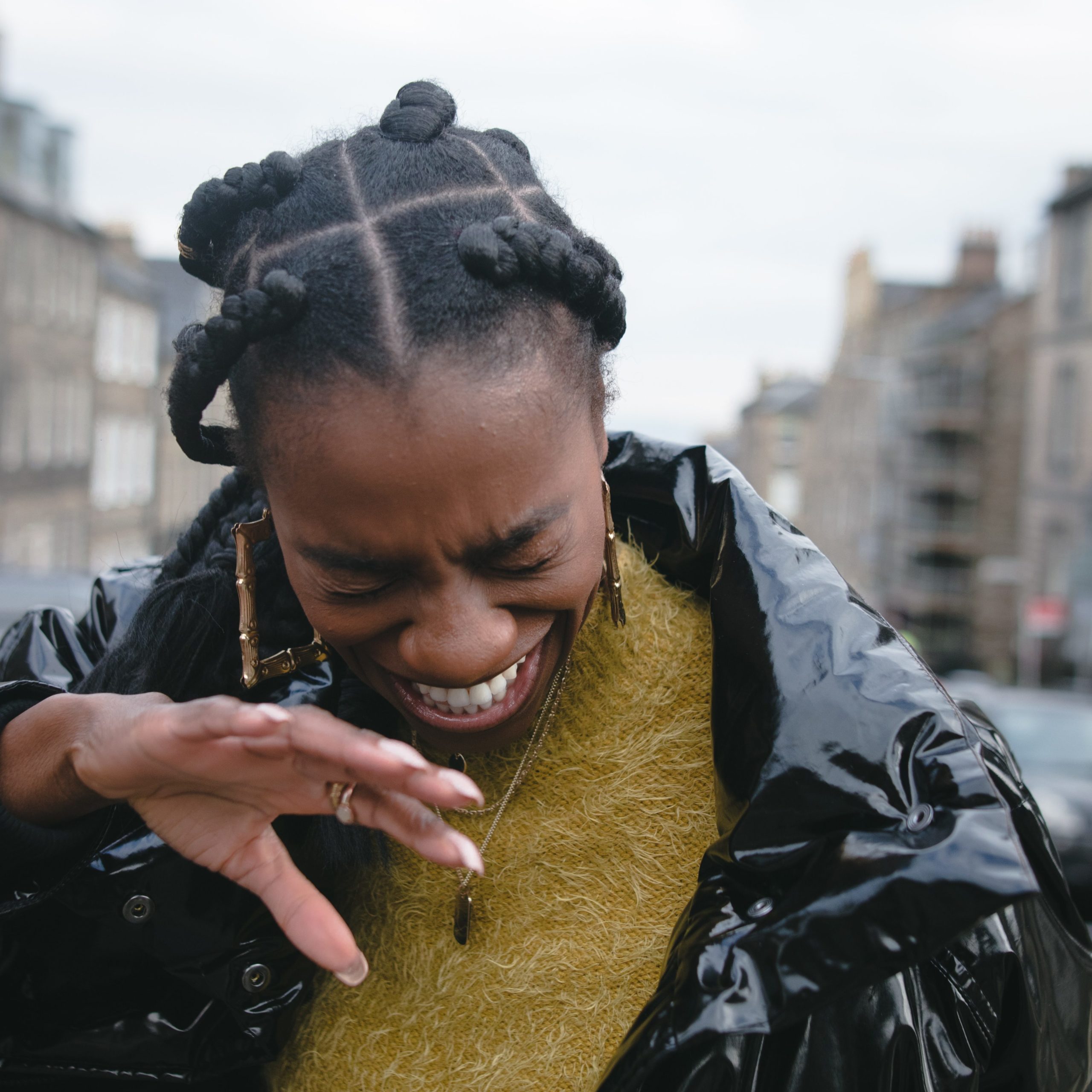
Say, for example, someone cracks a textual joke, you like it and you reply with a ‘😂’. The purpose of the emoji and the validation required for that particular piece of textual conversation is complete. The receiver has expressed their ability to take a joke and the sender feels validated. In some cases, liked, as well.
Now, someone cracks a niche joke, and a really good one (a great joke that demands a consensual, but great response). Then, one single 😂wouldn’t really execute the emotion or the laughter the receiver is enjoying. That’s when multiple 😂 (depending on the greatness of the context) will do the job of expressing the right emotion in the right measure.
So, when someone (irrespective of the gender) sends 😂😂 or 😂😂😂😂, it’s an obvious sign that the context is not only tickling their funny bones but also the rest of the body. Thus, making them weak for the joke or for you.
Another possibility lies in some of the instances we mentioned earlier. They like you, they like your vibe, they like the conversation, your incredible sense of humor, and they most definitely, want you to know it. Because, digitally, emotional honesty is optional, and when someone chooses to be honest about their emotions via emojis, then there’s some amount of emotional transparency that you can vouch for, in the chat.
Can You Tell Apart a Genuine Cackle and a Fake Laugh Online?
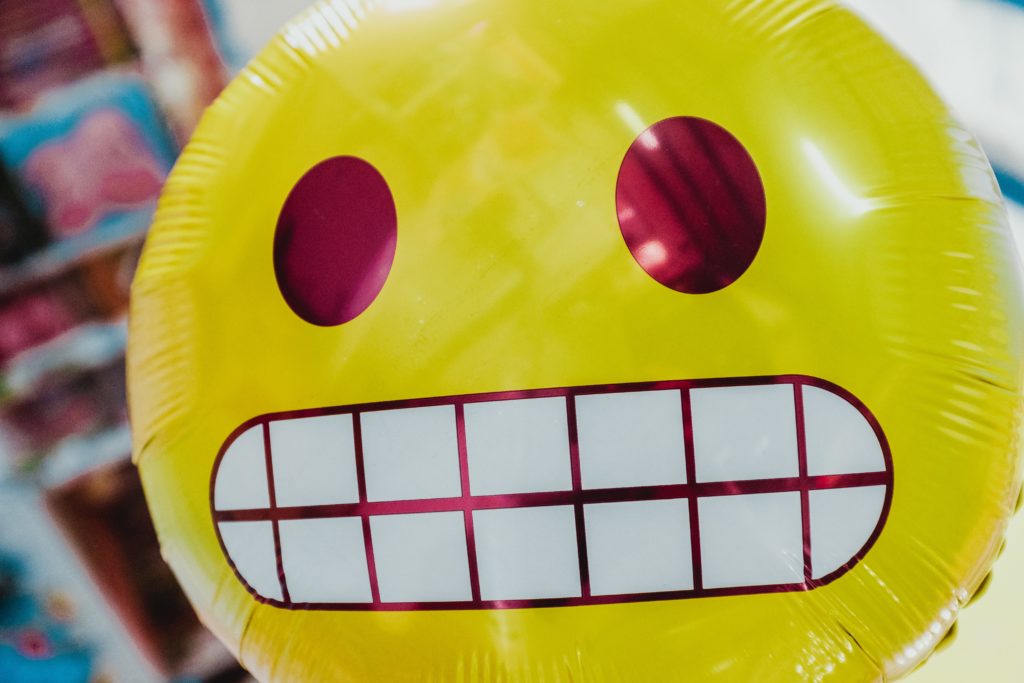
Sadly, it’s not always possible. However, there is a small trick in understanding the emotional stance of the sender. With this, hopefully, it would be quite clear if they actually find the joke to be funny or are just being nice and trying to be accepted and/or liked by the receiver.
A genuine emoji user will always use their emojis sparingly.
This means someone who uses emojis and is accustomed to sending them in textual conversations will always use emojis that are closely in line with their emotion. Which in turn means, they use emojis meaningfully. Therefore, with such users, it’s quite easy to tell if they really found the context funny, found you funny or it’s just another superficial chat.
This doesn’t mean that the rest of us, emoji-extroverts, don’t mean what we say with emojis. We do mean what we say, but sometimes we can get lost in emoji translation to an extent that emoji usage becomes more of a habit than means of expression. That could be problematic, sometimes.
Other ‘Laughing Emojis’
Apart from the OG digital symbol of laughter, there are other emojis that convey a humored reaction. Each reaching different levels of funny aches, including the painful and mind-numbing ones. Every laughing emoji showcases laughter in different measures and towards different jokes too.
🤣 Rolling on the Floor Laughing Emoji
We’d like to say that this emoji is a greater upgrade from the present 😂 tears of joy emoji. It expresses a more painful laugh and is also the perfect token of appreciation towards a great joke or great comic timing.
Nevertheless, it’s not often the preferred laughing emoji simply for the reason that it’s a rare reaction. Rolling on the floor, while laughing, is definitely a rare reaction to something funny. It would take a really good joke to do that! In fact, 🤣 is an emoji one earns.
😹 Cat With Tears of Joy Emoji
As the name gives it away, 😹 is indeed the cat version of the 😂 tears of joy emoji. 😹 portrays a two-fold laughter expression. First of all, it’s a cat laughing like the human on the emoji list.
Secondly, it’s a cat expressing human-like emotion, which has evolutionarily tamed over cat generations. So, here we have an emoji that resonates with something we haven’t seen in real life. Which only doubles the hilarity of the 😹 cat with tears emoji.
😹 is best when used in super funny conversations where you’re underlying intention is to be or seem cute. This emoji also works great for jokes about cats or as a way of saying that your cat is laughing at something.
😆 Grinning Squinting Face Emoji
This emoji, which we love to call, the ‘mocking laugh’ emoji, also happens to be the ‘Chandler Bing’s Face’ emoji. If you look close enough, you’ll see what we’re talking about. However, the meaning of this emoji does not rest on the character of Bing (or could).
😆 is the laughter of mockery that doesn’t reach as far as to insult, offend or initiate verbal ignorance, it only does the necessary. This is the perfect emoji for all the times you’re laughing at the joke, and not with it. It’s when you laugh at something that’s predictably ridiculous or capable of being so.
😄 Grinning Face With Smiling Eyes Emoji
We’ve all laughed, giggled, or snorted at something positively (‘positively’ because humor is such a thing that can work against the joke as well). We’ve at times laughed, not with a mocking attitude, not hysterically, nor with a facial fluidic mess.
Elegant laughter, we’d like to call it. 😄 is the warm laugh you’d express when something is silly but cute and acceptable, of course.
🥲 Smiling Face With Tear Emoji
This emoji is the “laugh” you’d have towards something that’s ‘painfully funny’. It’s when you do get the last laugh, but not necessarily a good one. It physically aches you but, it’s all okay. 🥲 is the laugh of pain. It’s when something is so painful and aching that it makes you cry with laughter. For instance, “Wow. Your ideas are so original 🥲”.
In Conclusion
We’d like to say that 😂 is not the only laughing emoji out there, but, it’s the most famous one on the list. The probable reason for this could lie in the fact that 😂 is much older than its cousin, 🤣 rolling on the floor laughing emoji.
Also, 😂 is the perfect ‘laughing emoji’, because a good laugh that’ll have you in tears is a well-known reaction. You’ve felt it quite a few times, if not every day. And a great laugh that’ll push you onto the floor, is rare. As we know, the former is a more common reaction to humor than the latter. Hence, 😂 is perfect, depending on the context, of course.